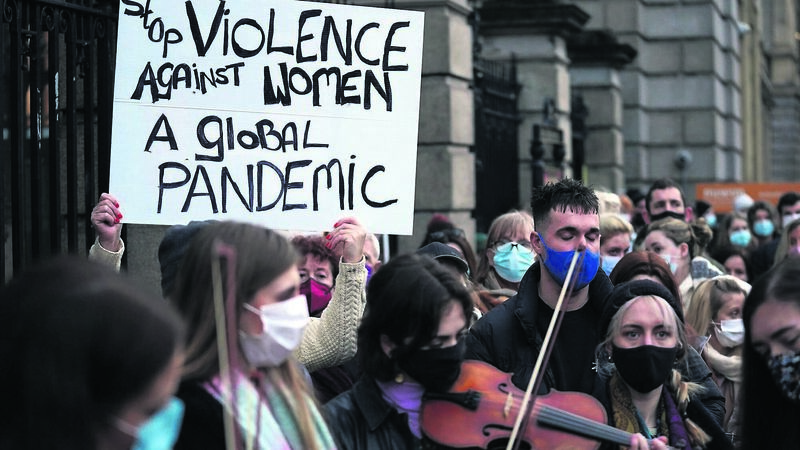Femicide is an emergency that Ireland has to deal with now

A vigil at Leinster House two days after the murder on January 12, 2022, of Ashling Murphy who was attacked while jogging along the Grand Canal in Tullamore, Co Offaly. Picture: Brian Lawless/PA
Three years ago, I stood with a group of women, shivering beside the sea in Co Wicklow on a cold January afternoon.
“Something needs to change,” we told each other in hushed voices as we lit candles in memory of Ashling Murphy, who had been murdered a week earlier. Since then, at least 28 more women have been killed by men.
















